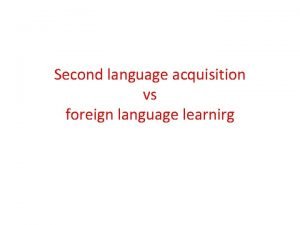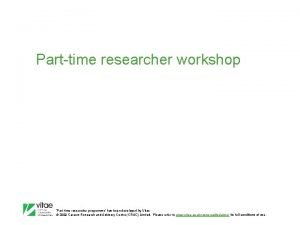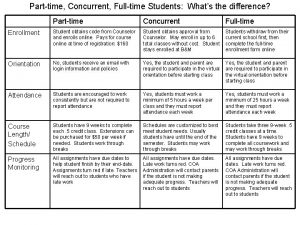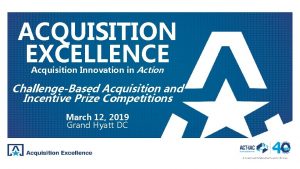The acquisition of academic literacies amongst parttime and












- Slides: 12

The acquisition of academic literacies amongst part-time and adult students in HE Jonathan Tummons Yorkshire Coast College

Initial Assumptions • Learning as socially situated (Lave and Wenger etc. ) • Literacy as social practice (Barton and Hamilton, Hamilton etc. ) • Literacy as artefact within a community of practice

Initial Questions • How do students learn to function within the HE community? • How do students learn to understand use the language of the HE community? • Does the literacy of the HE community act as a barrier to participation?

Attitude “Literacy practices I would take as referring not only to the event itself but the conceptions of the reading and writing process that people hold when they are engaged in the event. ” Street B V (1995) p. 133

Differences “Disciplines have different views of knowledge, different research processes, and different ways of seeing the world…reflected in different forms of argument and expression. ” Hyland K (2002) p. 352

Dominant Literacy i “…the problem of student confidence…cannot be managed simply by a more humanistic approach to student-tutor interaction. Instead, we locate the problem in terms of how the dominant discourse privileges some social formations over others…

Dominant Literacy ii …people may well be competent in vernacular literacies but as these are invisible in the dominant discourse they are not valued. ” Crowther et. al. (1999) p. 213 -4

Pilot Research Project • Focus on jargon – encounters, understanding and use • Questionnaire • Follow-up interviews • 55% return from target group

Initial findings Students engage in meaning making, relating to academic jargon, through: • Selective individual use of institutionallyprovided materials • Access to shared meaning-making and understanding within the community of practice • Mutual peer support outside the institution

Initial conclusions • There is a place and value for informal learning within the institution, which is used in part to decode the dominant literacy of the institution • Does this informality extend to academic literacies themselves? I. e. , students treat dominant literacies in a manner comparable to their treatment of vernacular literacies.

Initial conclusions • If students do not distinguish between dominant and vernacular literacies, does this challenge or implicitly reinforce the postmodernist analysis of tutor as power-broker?

Questions • Is this a theoretical framework that is relevant to your practice and context? • Have your students exhibited behaviours relating to literacies that could benefit this research? • Any other comments or suggestions relating to this project?























